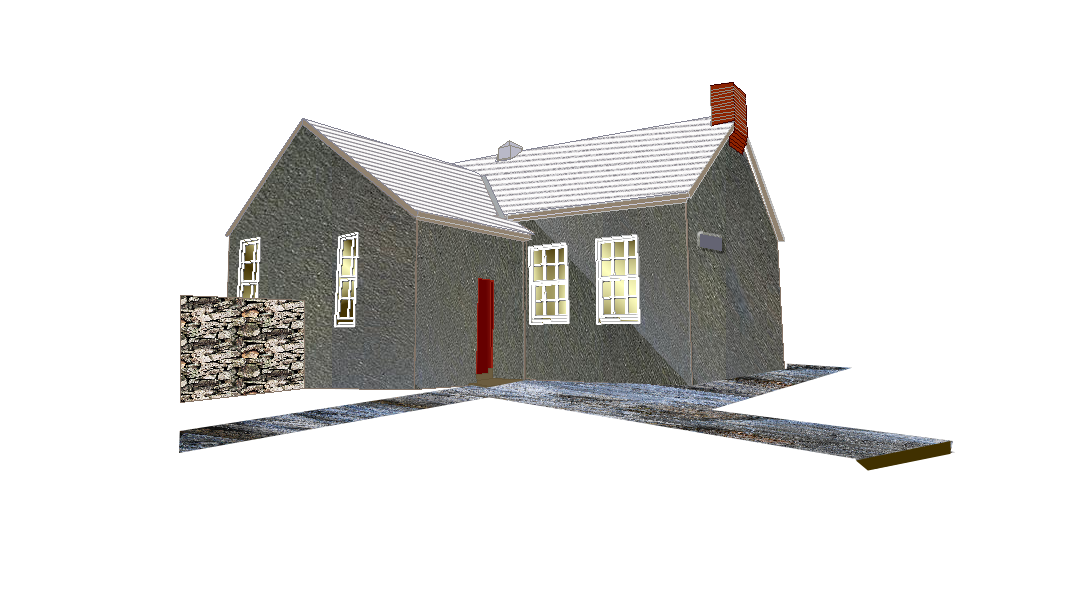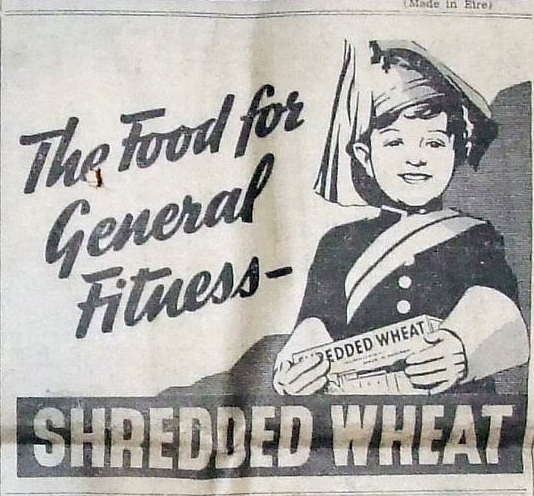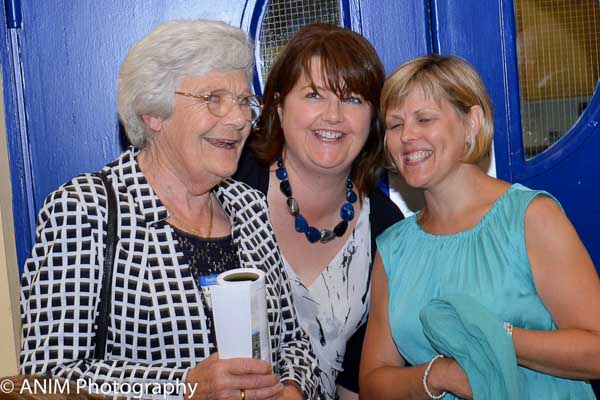Radio, Reading and Rock ‘n’ Roll
“Radio, Reading and Rock ‘n’ Roll”
Last group of children to attend Prizon School
Back row: Stephen Tonra, Noel Lyons, Nuala Jennings, John Murphy, Gerry Lyons, Gerry Jennings. Front: Kevin Morrison, Regina Lyons, Jacqueline Morrison, Joseph Earley, Kieran Earley. Missing from photo is Sharon and Philomena Murphy
The Overseas World Service gave good news coverage but the BBC station I remember best is the Light Programme on 1,500m long wave. It had news, music and other easy listening content. It also covered sports events and I remember one of the commentators having what seemed to be an anti-Irish bias. For example, at the start of a bout in which a Northern Ireland boxer was participating the boxer would be described as British. If he went on to win he would still be described as British. However, if he lost there would be a comment such as “the Irish boy wasn’t quite good enough”.
In the 1950s internet, Facebook, twitter etc. hadn’t been thought of and we hadn’t yet got television. Back then radio was a source of national and international news and entertainment. Radio Eireann broadcasting from Athlone on 530 metres medium wave, opened for a couple of hours in the morning, again for a while in the middle of the day and for a longer period from about 5pm. Among the presenters I remember were Michael O’Hehir (who also did the GAA match commentaries) on the Vaseline Hair Cream programme and Bart Bastable on Irish Hospital Sweepstakes. The latter programme went out late at night and finished with the words “It makes no difference where you are, you can wish upon a star.” The national anthem was played prior to close down. “Job of Journey work” with compere Ciaran MacMathuna presenting the best of Irish music was much listened to as was “Take the Floor” presented by Din Joe’ which included the sound of dancing feet - river dance on radio? There were numerous other good quality programmes that informed and entertained. If I remember correctly, one of the newsreaders back then was Denis Meehan.
The most popular music station for young people was Radio Luxembourg, calling itself “the station of the stars”, broadcasting on 208 metres medium wave. On one of their very popular programmes “Top Twenty”, they played the bestselling records each week. A programme called “Irish Requests” aimed at their Irish listeners was presented by Don Moss. Another programme was “Take your Pick” presented by Michael Miles. The Radio Luxembourg presenters came across as witty and light hearted. For me, the record that had the greatest impact at that time with its irresistible beat was “Rock Around the Clock” by I till Haley and the Comets.
During frosty weather, the reception on short wave became much improved and I sometimes got hill billy and blues music on AFN (American Forces Network in Europe). Also, on short wave I often got Radio Moscow - I think they had a transmitter in London. It was interesting to hear the different slants put on reporting of events. For example, if members of the IRA were involved in an incident the BBC (and later RTE and other stations) reports would describe them as “terrorists” while Radio Moscow would call them “Irish freedom fighters”. Propaganda and spin didn’t start only recently!
Daily and Sunday newspapers were a valued source of news, and had cartoons such as “Phantom - the ghost who walks75 in the Independent I think, and “Blondie77 and “The Looneys77 in the Sunday Press. The one-time chairman of Irish Press, John E. MacEllin, had connections with Prizon.
In rural areas few households would buy a paper every day except when something of special interest was going on. The postman, Ned Walsh used bring a few papers with him for sale which saved having to go to Balla for one. I particularly remember trying to get a paper as often as I could during the Melbourne Olympics in 1956 when Ron Delany won the 1,500 metres gold and some of the Irish boxers also won medals. It was thrilling to see photos and read vivid accounts of victories by members of the small Irish team competing so far from home against top world athletes.
Papers such as “Connaught Telegraph77 “Western People77 and “Mayo News77, all of which are still going strong, provided local news and covered a wide range that included court reports involving cases such as poteen making, unlighted bicycles, no dog licences, wandering livestock and after hours drinking. After being read at home, often these papers were then posted to family members abroad.
Weekly magazines such as “Ireland's Own77 and “Our Boys77 had songs and stories of mostly Irish interest and gave much pleasurable reading. The religious magazine I remember best is the “Far East77. Comics, mostly imported from England, included “Dandy77, “Beano77 and “The Topper77. The latter featured “Roy of the Rovers77 who played for Melchester Rovers and often got them out of trouble by scoring dramatically in the last minute.
The cinema run by Fred Blanchfield in Balla was another source of entertainment with great films, and news from Movie tone and Pathe newsreels, many of which can still be viewed and purchased on the internet. The Maple Hall had various entertainments, most not intended for schoolchildren. More locally there was Ara Hall where for a long period a man named Albert provided entertainment and drama, ran raffles and had door prizes such as a bag of flour, a calf etc.
There was also of course the everyday news and gossip shared whenever people met during the course of their daily activities. When going to the well for water, moving livestock, hauling material using horse or donkey, going about ordinary business on foot or bicycle one was likely to meet others and almost always made time to stop for a chat. Despite the leisurely pace the work still got done and life went on. On Sundays, there would be many people on the roads walking and cycling to Mass. Before and after mass people, mostly men, would gather outside the church for a smoke and a bit of banter and chat on a wide range of topics. Sometimes the chat continued inside at the back of the church.
The visiting houses were also a great place for news, banter, storytelling, card playing, making deals, ghost stories, sharing tips on cures for man and beast, maybe a bit of music or singing, all in a relaxed easy going way. Contact and conversation then was real not virtual, face to face rather than Facebook and there was the sound of genuine laughter instead of lol.
Technology has brought immense benefits and undoubtedly will bring many more which we should fully utilise, but is there a case to be made every now and then for holding on to some of the old ways?
By Tomas O Ceirin
Children never put off until tomorrow the things that will keep them out of bed tonight











On Easter Sunday morning we first go to Mass. when we come home we have our breakfast. We make a fire, and we make tea and we have sweet-cakes and eggs in a field if the day is fine.